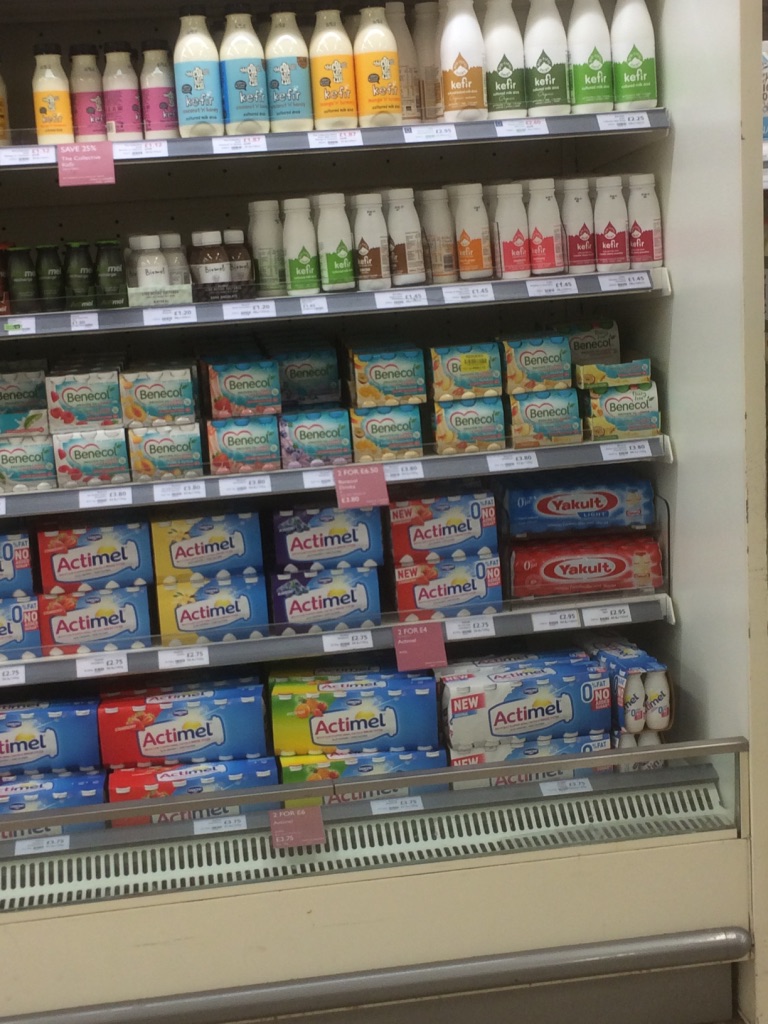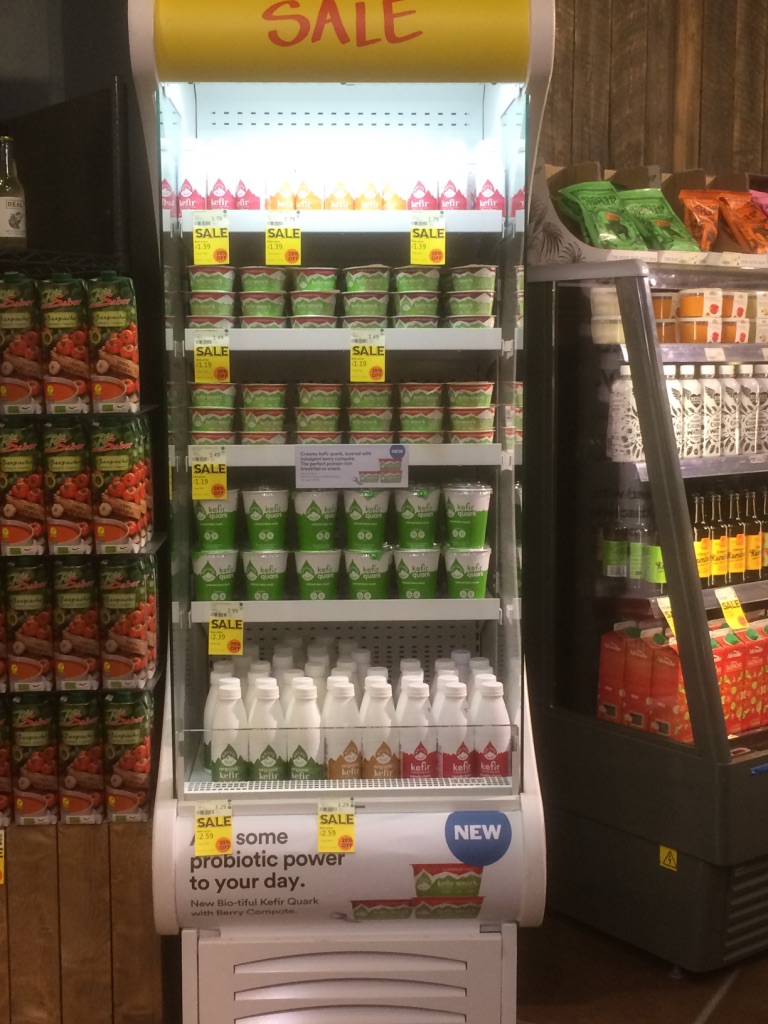If you want to learn how to take a new type of product to market successfully, one of the best case studies is UK kefir brand Biotiful, which connects to all the most-important trends.
Biotiful was created by Russian former figure skater Natasha Bowes in 2012. Natasha saw the need for British-made, good quality kefir. She appeared on UK TV show Dragon’s Den – similar to Shark Tank – to pitch the business idea. She got an offer of investment, but walked away as the panel asked for too big a share.
Since then – without any help from ‘experts’ – she has grown Biotiful into a business with sales of over $12 million (€11 million) and a steadily increasing amount of supermarket shelf-space that in many stores rivals that of Danone’s Actimel brand.

Biotiful’s biggest selling point is probably taste, which is distinctive but has wider appeal than most kefirs. Ready-to-drink kefir, smoothies and spoonables are positioned as a better alternative to milk and yoghurt and are said to be:
- natural, naturally healthy, traditional and authentic
- gut-friendly, free-from added sugar and low in lactose (the latter making it attractive to many people who buy plant-based alternatives)
- a path to “intelligent eating” and to “feel your best every day”
With the launch of a kefir quark, the brand also markets itself on a protein platform, describing this new variant as a ”high-protein fresh cheese”. Each pot carries a ’high protein’ label and the high protein content was a key promotional point when the product debuted.

Marketing is fairly low-cost: Biotiful relies heavily on social media, in-store sampling and events. And when it can it gets the consumer’s attention with dedicated merchandising units, such as the one shown.
The brand tries to educate consumers, with a section of the website dedicated to research articles on the health benefits of kefir.
Biotiful connects to the big trends of digestive wellness and authenticity and provenance. It uses simple ingredients and it tastes good. In a crowded dairy market it’s unlikely ever to be a really big brand, but it shows what can be done with a quality product, imagination and the willingness to connect to the key health trends.
To find out more about Biotiful see the Case Study in New Nutrition Business October 2018 and at: https://new-nutrition.com/nnbReport/minidisplay/83

